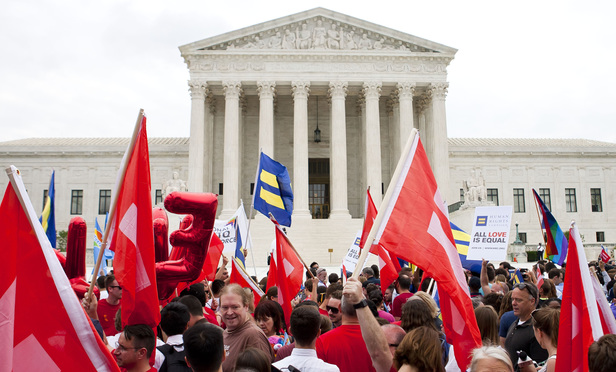The U.S. Supreme Court’s same-sex marriage ruling in Obergefell v. Hodges has caused employers to reanalyze their benefit structures. Seems a blast of the obvious, right? Of course employers now must include in the definition of “spouse” any legally married, same-gender spouse for benefit coverage (i.e., Family and Medical Leave Act time, paid sick time, bereavement, health insurance coverage, survivorship benefits in pension plans, etc.). But the highly publicized ruling is having some unexpected, and even unintended, effects on workplace benefits.
Employers now face arguments for retroactive coverage and are considering whether to extend benefits only to legally married spouses, eliminating those previously offered to employees’ domestic partners. An added aspect of the ruling relates to cultural tensions that certainly will heighten in the workplace.
This content has been archived. It is available through our partners, LexisNexis® and Bloomberg Law.
To view this content, please continue to their sites.
Not a Lexis Subscriber?
Subscribe Now
Not a Bloomberg Law Subscriber?
Subscribe Now
LexisNexis® and Bloomberg Law are third party online distributors of the broad collection of current and archived versions of ALM's legal news publications. LexisNexis® and Bloomberg Law customers are able to access and use ALM's content, including content from the National Law Journal, The American Lawyer, Legaltech News, The New York Law Journal, and Corporate Counsel, as well as other sources of legal information.
For questions call 1-877-256-2472 or contact us at [email protected]




